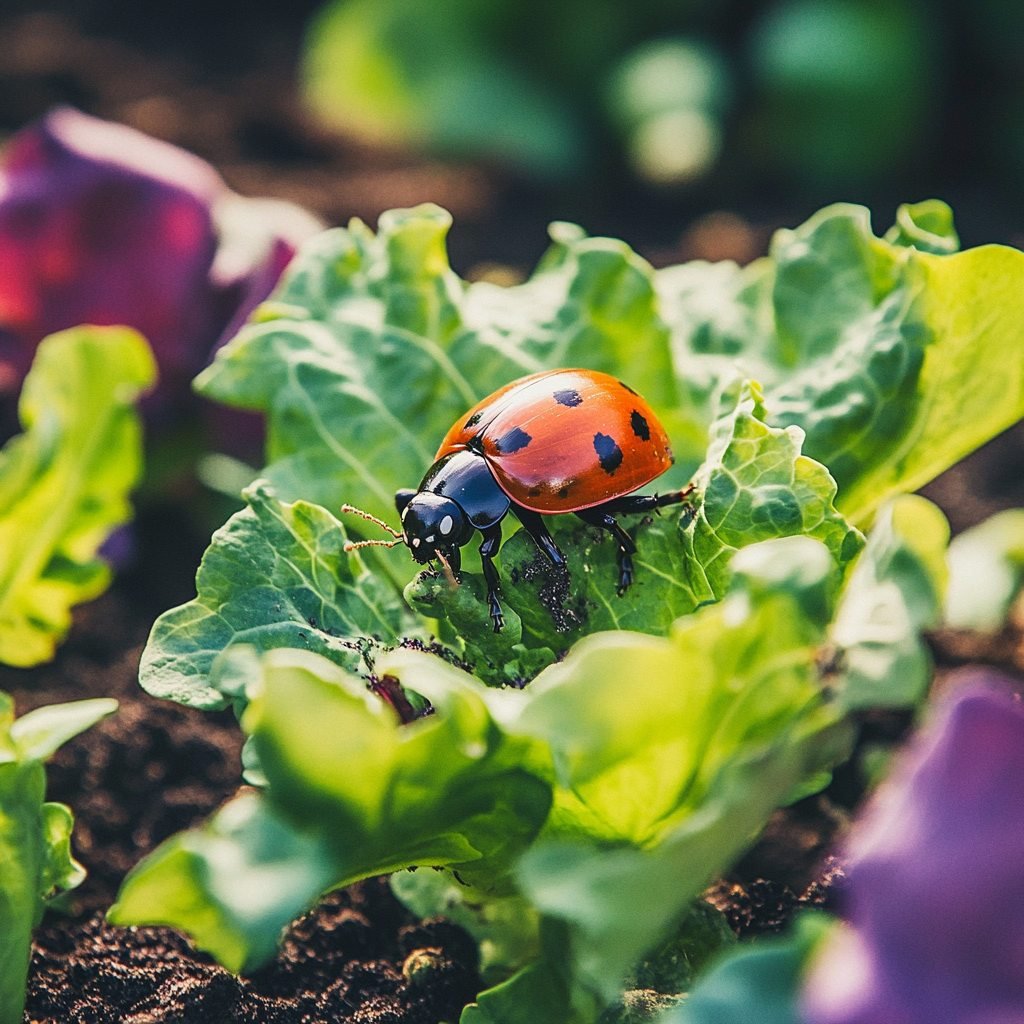Every gardener knows the frustration of seeing their plants damaged by pests. Whether it’s aphids, slugs, or caterpillars, these uninvited guests can wreak havoc on your garden if left unchecked. But using harsh chemicals isn’t the only solution. In fact, you can protect your garden naturally, keeping it pest-free without harming the environment. In this guide, we’ll explore natural ways to protect your garden from pests, ensuring that your plants thrive without the need for synthetic pesticides.
The Best Tools for Efficient Landscaping | The Best Backsplash Ideas for a Modern Kitchen
The Best Plants for a Shady Garden | How to Attract Bees and Butterflies to Your Garden
Why Natural Pest Control Matters
Chemical pesticides may seem like a quick fix, but they often do more harm than good. Not only can they kill beneficial insects like bees and ladybirds, but they can also contaminate the soil and water, harming the environment. By choosing natural pest control methods, you’ll be creating a safer environment for your plants, wildlife, and yourself.
Benefits of Natural Pest Control
- Eco-Friendly: No harmful chemicals enter the ecosystem.
- Safer for Pollinators: Bees, butterflies, and other pollinators are less likely to be harmed.
- Healthier Soil: Natural methods promote healthy, nutrient-rich soil.
- Sustainable: You can often use items already in your home or garden.
Preventing Pests Naturally
Prevention is always better than cure. The key to a pest-free garden is creating an environment where pests are less likely to thrive. Here are some tips to help you deter pests naturally.
Use Companion Planting
Companion planting involves growing certain plants together that repel pests or attract beneficial insects. For example, marigolds are great for repelling aphids, while basil can deter mosquitoes and flies.
- Examples of Companion Plants:
- Marigolds: Repel aphids and whiteflies.
- Lavender: Keeps moths, fleas, and mosquitos at bay.
- Basil: Great for repelling mosquitoes and flies.
- Nasturtiums: Act as a trap crop, attracting aphids away from your vegetables.
Keep Your Garden Healthy
A strong, healthy plant is much more resistant to pests than a weak one. Ensure your plants are well-fed with organic compost and watered adequately, but not over-watered.
- Tips for Maintaining Healthy Plants:
- Water in the morning to prevent damp conditions at night.
- Rotate your crops each season to prevent soil depletion.
- Regularly prune and remove dead leaves where pests might hide.
Natural Pest Control Methods
Even with the best prevention, pests may still find their way into your garden. Fortunately, there are plenty of natural solutions to keep them in check.
Homemade Natural Pesticides
You don’t need to buy expensive pesticides to keep pests away. Many common household items can be transformed into effective pest repellents.
- Garlic Spray: A strong garlic spray can deter pests like aphids, ants, and caterpillars.
- How to make it: Blend a few cloves of garlic with water, strain, and spray on plants.
- Neem Oil: Neem oil disrupts the feeding and reproduction of pests like mites and aphids.
- How to use it: Dilute neem oil with water and spray on affected plants.
- Soap Spray: Soap mixed with water can suffocate soft-bodied pests like aphids and whiteflies.
- How to use it: Mix a few drops of liquid soap in water and spray directly on pests.
Introduce Beneficial Insects
Some insects are your garden’s best friends. By attracting these helpful creatures, you can reduce pest populations naturally.
- Ladybirds: Known for eating aphids and other small pests.
- Lacewings: Another predator of aphids, mites, and caterpillars.
- Hoverflies: Feed on aphids, thrips, and caterpillars.
Physical Barriers
Sometimes the simplest solutions are the most effective. Physical barriers can prevent pests from even reaching your plants in the first place.
Netting and Row Covers
By covering your plants with fine netting or row covers, you can physically block pests like birds, caterpillars, and insects from accessing your garden.
- Benefits: Netting still allows sunlight and rain to reach your plants while keeping pests out.
Handpicking
For larger pests like caterpillars or beetles, sometimes the best method is to handpick them off the plants. While this can be time-consuming, it’s effective and chemical-free.
Summary Table
| Natural Pest Control Method | Description | Best For |
| Companion Planting | Plant combinations that repel pests | Aphids, Mosquitoes |
| Garlic Spray | Homemade garlic-based pesticide | Aphids, Ants |
| Neem Oil | Natural oil that disrupts pests | Mites, Aphids |
| Ladybirds | Beneficial insects | Aphids, Small Pests |
| Netting | Physical barrier to block pests | Birds, Caterpillars |
Protecting your garden from pests doesn’t have to involve harsh chemicals or harmful pesticides. By implementing these natural pest control methods, you can create a thriving, eco-friendly garden where your plants—and the environment—benefit. Remember, a balanced ecosystem is key to long-term pest control. The more you encourage beneficial insects and healthy plants, the fewer problems you’ll have with pests.
FAQs
Companion planting, using physical barriers, and keeping your plants healthy are great natural prevention methods.
Most homemade sprays, like garlic or soap sprays, are safe for plants when used correctly. Always test on a small area first.
It depends on the pest, but typically every 7–10 days or after heavy rain for the best results.
Flowers like marigolds, daisies, and lavender attract ladybirds, hoverflies, and other helpful insects.
Natural methods can be just as effective if used consistently and in combination with other good gardening practices.




